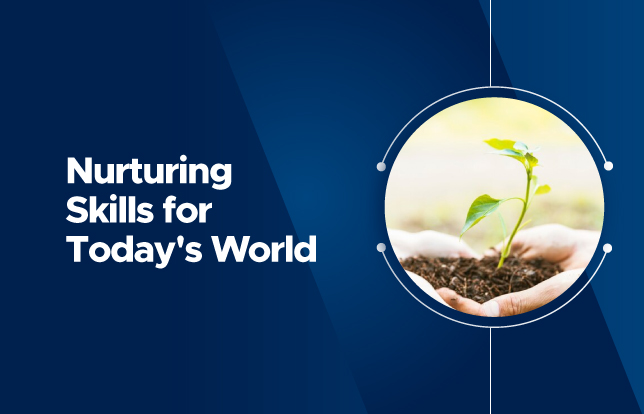Emphasizing lifelong learning and continuous skill development in today’s world
Learning does not end after you graduate from the top colleges. It is a lifetime process where one needs to stay and follow today’s industry trends and advancements which apply to their career. When it says continuous learning, it includes formal courses, training programs and group coaching. Professionals must also look for training opportunities and assistance in developing their professional lives in today’s business environment. Investing time in learning helps to develop and increase the growth opportunities in business. This article is for students who are pursuing MBA data analytics colleges in Sivakasi and should be aware of improving their skill sets with the pattern of lifelong and continuous learning.
Difference between lifelong and continuous learning:
The term lifelong learning states that an individual makes a long-term, volunteer commitment to acquiring and learning new skills and knowledge. For example, today employees need to keep up with current trends; this can be achieved by devoting time each day to reading about current events and emerging patterns to achieve long-term benefits. This helps in focusing and achieving the required skills for the betterment of career opportunities.
Continuous learning refers to taking more training or classes to advance one’s career profession or open doors for new employment positions. This learning is related to formal commitment that assists the employees in achieving the company objectives efficiently.
In short, lifelong and continuous learning has a great contribution to the employee in developing the individual skills that help them to grow professionally. Let’s discuss its advantages.
Lifelong and continuous learning advantages:
Job security:
It is common for employees to feel pressure to get promoted to the next level and industries continue to evolve at a rapid speed with technology. There is always competition between fresh skills and this makes employees follow the current demands and trends to stay with upgrading their knowledge. Developing professional skills reflects your dedication to your industry and career. Lifelong learning is necessary to polish your skill set and to be an asset to the industry. Ever-changing career landscape: It is one of the reasons why today’s job market diversified and expanded with the career paths. The disruption of traditional industries with technological advancements, automation and global trends are some of the reasons. To cope with this trending landscape, it is necessary to learn and develop new skills.
Career opportunities:
Lifelong learning is suitable for every graduate who chooses to work in their desired field. This also helps in opening the door to new roles or careers. For example, if you’re working as a junior employee in your company, then the learning and experience process or applying for any courses may let you move towards a higher position or make a new transition. However, this is achievable when you have a full interest in learning and aiming to switch careers.
Industry trends:
Professionals must stay updated with the industry advancements, and follow the best practices, emerging technologies are the reasons which make you a business asset.
Motivation:
It is common that some careers let the employee lose their interest as time goes on. And might feel the job become routine and boring tasks day after day. You can learn a new skill and rekindle your enthusiasm via lifetime learning. This process of re-discovering and working hard keeps you inspired to pursue your career.
Soft skills:
Though, colleges help you to achieve your vision academically. It is individual skill and talent that let you achieve the goal. Lifelong learning is useful for graduates who get into real-time fieldwork and can understand how soft skill requirements are important for the career. You can achieve personal and professional goals when you spend time in strengthening your character features including goal setting, self-discipline, creativity, managing time and problem-solving skills.
Confidence:
Lifelong learning improves your self-confidence. It means you can master new skills, unlock potential and enhance your self-esteem. Second, it helps you to advance your career, and your sense of purpose will grow.
Career-related learning offers advantages to employees in developing their skills and growing professionally. It is clear that artificial intelligence and automation are not reshaping the job market in every sector. This continuous learning helps to equip them with today’s market skills and be able to thrive in future fields with a proactive, adaptable and growth mindset. Unlocking new potential, embracing growth, and creating a new successful career journey is the great advantage for continuous and lifelong learning.
Conclusion:
Understand that both lifelong and continuous learning are essential for a successful workplace and it never stops at the employee level or experience gained. Though top colleges for an MBA in marketing offer academic knowledge to begin your career, it is up to your learning process that decide your growth and improvement. This will remove the skill gap, be able to be seen as an asset, increase your package, develop a more growth mindset, and have the ability to qualify for new roles. It gives both companies and individuals a competitive edge and helps them stay on top.



